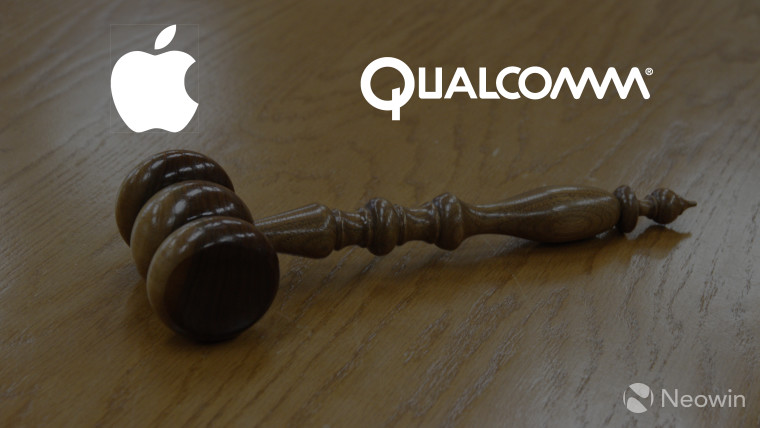
The ongoing legal battle between Apple and Qualcomm is taking quite a heavy toll on the silicon maker's finances but the company is not backing down from the fight. In its latest strike, Qualcomm is trying to get the sales and manufacture of iPhones banned in China.
As Bloomberg reports, Qualcomm's beef with the iPhone manufacturer this time seems to concern the infringement of three patents, which it claims are not essential to industry standards. Companies like Qualcomm are legally obligated to license patents which are believed to be essential at fair prices and while Qualcomm has already landed under hot water for refusing to do so in some cases, if the patents in question are, indeed, found to be non-essential, the company can not only refuse to license them to Apple but can also set higher prices for their use.
The ban of iPhones the country is believed to be unlikely but any action against Apple in China could have far more devastating consequences than the chipmaker's similar appeal in the US. While an injunction against sales would obviously hurt the company's bottom line, the majority of iPhones are also manufactured in China, meaning a ban on production could dry up the company's supply chain and cause shortages worldwide.
Apple dismissed the charges in relation to these patents, which deal with power management and Force Touch, as 'meritless' and suggested Qualcomm was deliberately playing a game, saying,
“In our many years of ongoing negotiations with Qualcomm, these patents have never been discussed and in fact were only granted in the last few months. Regulators around the world have found Qualcomm guilty of abusing their position for years. This claim is meritless and, like their other courtroom maneuvers, we believe this latest legal effort will fail.”
This episode is the latest in a line of lawsuits filed by both companies against each other, beginning with Apple accusing the silicon maker of abusing its dominant position as the supplier of smartphone modems to gain unfair terms. Indeed, regulators in South Korea, Taiwan and China have already fined Qualcomm over similar claims. Qualcomm soon replied with claims of patent infringement, with this pattern replicating itself around the globe.
_small.jpg)















12 Comments - Add comment